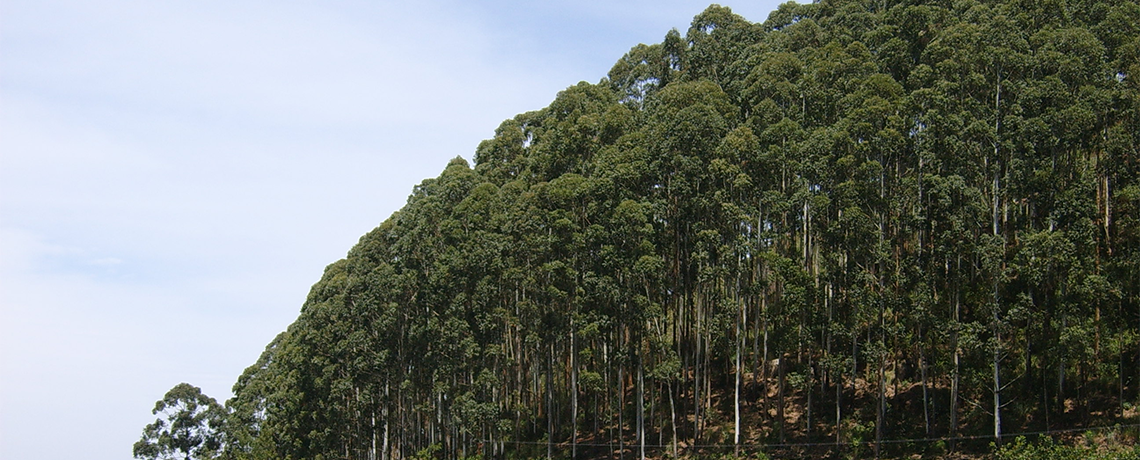Eucalyptus Plantations, Toilet Paper Companies Devastate Brazilian Town
 The devastating social and ecological impacts of plantations, especially eucalyptus are well documented and vast. Freeze tolerant genetically engineered eucalyptus trees could allow eucalyptus plantations to expand to new geographies around the world, impacting communities, forests and biodiversity in their path.
The devastating social and ecological impacts of plantations, especially eucalyptus are well documented and vast. Freeze tolerant genetically engineered eucalyptus trees could allow eucalyptus plantations to expand to new geographies around the world, impacting communities, forests and biodiversity in their path.
See more on genetically engineered eucalyptus here.
- A Mongabay investigation has found that global consumers who buy brand name toilet paper and tissues may unwittingly be fuelling land conflicts, environmental crimes and the loss of native vegetation in Brazil.
- Residents of Forquilha, a traditional community in Maranhão state, allege that an agricultural entrepreneur used armed gunmen to try and force them out in 2014. The businessman took land claimed by the community and converted it to eucalyptus plantations, intending to sell the trees to Suzano, Brazil’s biggest pulp provider.
- Kimberly-Clark confirmed to Mongabay that it sources a significant amount of eucalyptus in Brazil from Suzano and Fibria, with pulp used to make “tissue and towel products like Scott, Cottonelle, Kleenex and Andrex.” Critics dispute industry claims that most pulp used is properly certified to prevent deforestation and protect local communities.
- This year, Suzano moved to buy competitor Fibria. If the deal goes through, Suzano will become the world’s biggest pulp provider. Suzano runs large-scale eucalyptus plantations, and buys trees from suppliers’ plantations, and according to NGOs, has displaced traditional populations, driven land conflicts and cleared large swathes of forest.
FORQUILHA, Maranhão, Brazil — For decades, dozens of families lived peacefully in the small traditional community of Forquilha (pronounced Fork-quill-ya) in the Cerrado, Brazil’s vast savannah biome. As is typical in rural Brazil, the homesteaders lacked land deeds, leading a subsistence lifestyle, in tune with the seasons, annually planting crops and raising animals.
About seven years ago, a wealthy entrepreneur arrived and began converting native vegetation on communally shared lands into eucalyptus plantations. If all went as planned, he would sell the trees to the Suzano pulp and paper company to help feed a global demand for Kleenex tissues and Andrex toilet paper.
In 2014, things turned violent.
Armed men patrolled Forquilha, illegally entered people’s homes, smashed furniture and threatened to kill community members. The thugs came with a message: Renato Miranda, the eucalyptus grower, had always owned local lands and the community had unlawfully invaded his property. The people were told they had eight days to pack up their belongings and leave.
“No-one knew where to go, everyone was terrified, desperate,” remembers Antonia Luis Ramalho Lima, a 54 year-old wife and mother who still lives on a smallholding in Forquilha, where she raises livestock and grows crops for herself and her family.
The violence escalated. Gunmen abducted a father and son, took them to a nearby river, and threatened murder unless the family abandoned their homestead. Another day, armed men stole 22 cows, depriving a traditional family of their basis for survival.
Three elderly community members died that year, directly following threats to their lives. Lacking anywhere to go, the families stayed in their homes, though many individuals fell into severe chronic depression, a state from which they’ve yet to recover.
“I wasn’t eating, I wasn’t sleeping, just crying,” recalls Maria Sonia Silva de Carvalho, 46, wife and mother to those taken to the river. “I’m still depressed, I still hear the van passing the house at night. I won’t forget what they did.”
